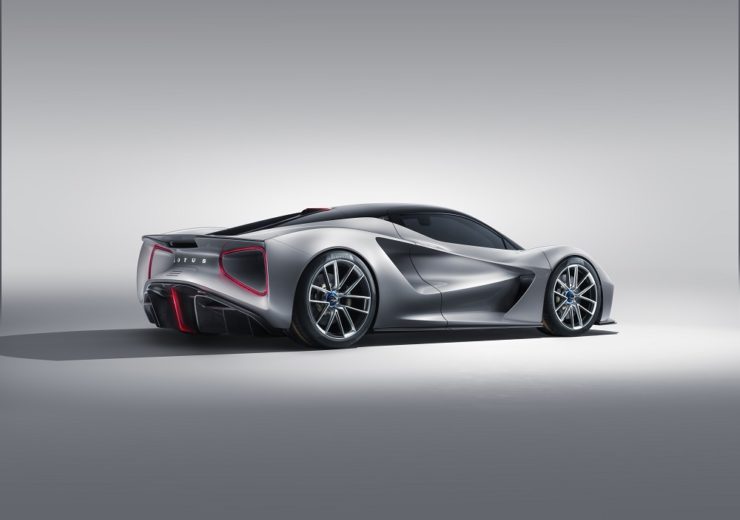Electric car owners will be able to sell excess energy from their vehicles to the grid using a smart device

Production of the all-electric Lotus Evija hypercar will start at the company’s famous Hethel, Norfolk HQ later in 2020 – marking the start of Lotus’ journey to electrifying its growing range of vehicles (Credit: Lotus)
Cars will become an extension of the home when it comes to energy supplies using a new smart charging platform for electric vehicles being developed by two industry powerhouses. Centrica, parent company of British Gas, and UK motor manufacturer Lotus are working together to develop a plug-in device that fully integrates future mobility and renewable energy.
The companies aim to create new two-way infrastructure that turns EVs into moving batteries plugged into the grid, and able to not just consume but supply the energy market too – generating new income for drivers as well as reducing transport emissions.
It’s claimed this system would redefine the customer relationship into one controlled by consumers using smart devices at home and on the move.
Centrica and Lotus CEOs on increasing uptake of electric vehicles
Centrica group CEO Chris O’Shea said: “We are committed to helping our customers and communities achieve net zero and to do so, we must enable the change to electric vehicles.
“We have the technology, the skills and the scale to do this and our partnership with Lotus is another step in bringing our commitment to life.”
Lotus Cars CEO Phil Popham added: “Our journey to net zero-carbon is absolutely lock-in-step with the Vision 80 strategy for Lotus – taking us to 80 years of the business in 2028.
“By then we will have transformed Lotus in to a truly global player in the high-performance, high-technology sector with a new range of cars that remain true to our fundamental promise of always being ‘for the drivers’.
“The difference is the energy and infrastructure that will power and support these products in the future – this new partnership demonstrates the progress being made and the ambition of our vision.”
What the Centrica-Lotus partnership for electric vehicles involves
Smart EV charging was put forward by the UK government-backed Electric Vehicle Energy Taskforce as key to enabling the transition to zero-carbon mobility in a report published earlier this year.
The taskforce, consisting of experts from across the energy and transport industries, suggested EV owners could plug their vehicle into the energy system overnight and a smart device would only charge it when demand – and electricity prices – were at their lowest, providing benefits for consumers and the grid.
A flexible charging platform in this style will now be developed by the Centrica-Lotus partnership, which aims to “power a future digital mobility lifestyle”.
Centrica will also facilitate a sustainability programme that leverages innovative, low-carbon technologies and helps to mitigate the environmental impact of everything from manufacturing through to sales and the daily activities of Lotus.
The partnership will help establish a new global charging and energy infrastructure for new products released by Lotus as part of the UK brand’s aims to reach net zero.
Carl Bayliss, vice-president of Centrica Innovations, said: “Owning an electric vehicle isn’t the same as owning an internal combustion engine car.
“We see a future where the customer, car and home are connected, enabling new services beyond charging the car, and new products and experiences replacing the unremarkable standard relationship with energy and the ownership of a car today.
“Lotus is the perfect partner as we embark on this, given the recognition and appeal of the brand globally and the fact that it is right at the beginning of its electrification journey.”
Uday Senapati, executive director for corporate strategy at Lotus, added: “Centrica brings a wealth of energy sector expertise to the table that will not only help us to determine the right course for our mobility strategy, but the hands-on capability to ensure that the right infrastructure is in place globally.
“The future of mobility is a huge opportunity for providing value-added services to the consumer and this platform will put Lotus at the forefront of that digital mobility ecosystem.
“We have set ambitious targets for decarbonising both our vehicles and our operations. Given the rate of change required and the importance of getting it right first time, the support of our strategic partner Centrica is going to be vital.”
